JUBILEE YEAR OF ALBERT SCHWEITZER (2025)
2025
JUBILEE YEAR OF ALBERT SCHWEITZER
Theme : SUSTAINING THE HUMANITARIAN COMMITMENT
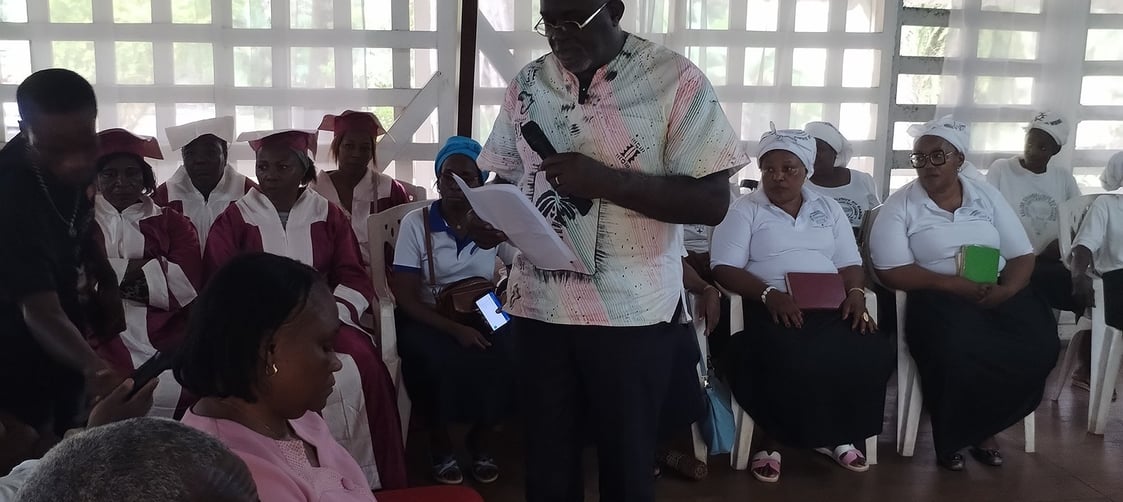

CONTEXT
The Gabonese Association of Friends of Albert Schweitzer (AGAAS) is a non-profit organization dedicated to promoting and preserving the legacy, philosophy, and work of Dr. Albert Schweitzer. Founded on February 12, 1990, the association organizes annual commemorative events to safeguard Schweitzer’s heritage and pass it on to future generations. The ultimate goal is to advocate for the inclusion of this heritage in UNESCO’s cultural heritage list.
The year 2025 marks a pivotal moment in the fight for the preservation of Schweitzer’s legacy, as it commemorates the 150th anniversary of Albert Schweitzer’s birth, an event named "The Jubilee Year". To honor this occasion, AGAAS has developed a special activity calendar and invites all individuals, organizations, and institutions who wish to contribute to this noble cultural and historical endeavor.
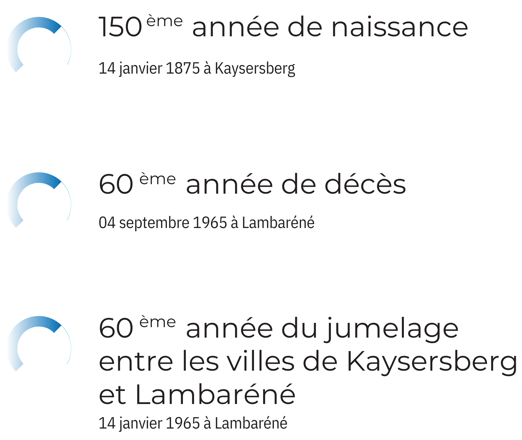

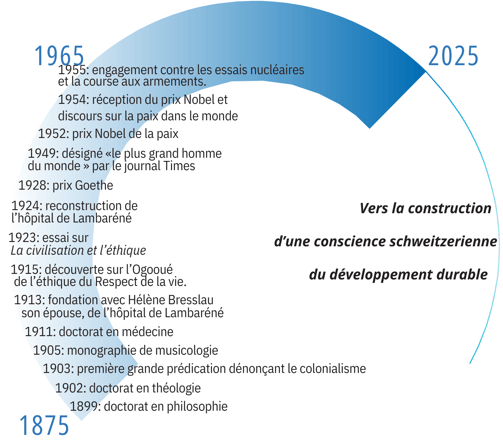

The Philosophy, Work, and Way of Life of Albert Schweitzer: An Asset for Our Times
THE MISSION OF AGAAS: EXCERPT FROM A SPEECH
Message from AGAAS on the Occasion of the Opening of the Albert Schweitzer Jubilee Year 2025
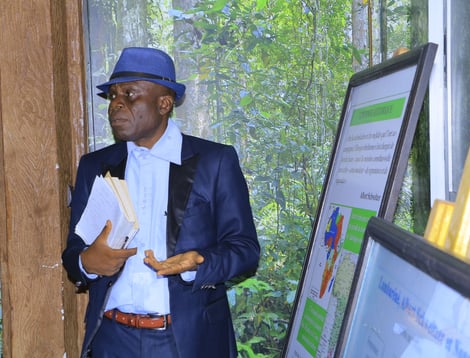

On December 10, 2009, in Oslo, during his acceptance speech for the Nobel Peace Prize, President Barack Obama elevated Albert Schweitzer to the rank of a giant of humanity, alongside three other Nobel laureates: Martin Luther King, George Marshall, and Nelson Mandela.
No one would think to question Barack Obama's ability to discern, his knowledge of human history, or his role as a privileged witness to our times.
This gesture of goodwill and respect from the former American President toward Albert Schweitzer takes on its full meaning in this year 2025, as we celebrate a triple jubilee: the 150th anniversary of Albert Schweitzer’s birth, the 60th anniversary of his passing, and the twinning of the cities of Kaysersberg and Lambaréné in 1965.
Such significant events invite us to take a closer look at the message of humanism carried by Albert Schweitzer. We will see that his philosophy, work, and way of life continue to challenge human conscience in this 21st century, marked by numerous dangers.
Let us take this jubilee year as an opportunity to deeply reflect on the Schweitzerian message and its relevance—perhaps even its necessity—for the revival of humanity that we all desire.
Indeed, there is a strong connection between the legacy of Albert Schweitzer and the universal values embodied by the United Nations system. At a time when humanity is seeking ways to replenish itself and rethink its sustainable development strategies, it is essential to revisit the legacy of great philosophers who have inspired international law, social justice, and universal fraternity.
The Schweitzerian Legacy of Universal Values
Rarely has human history presented such demanding moments as in this year 2025, a time marked by pressing moral aspirations for the survival of our planet. Never before has the world been so acutely confronted with its ethical and conscientious responsibilities, particularly in matters of sustainable development and human solidarity.
Young generations, inheriting a planet ravaged by selfishness and exploitation, are searching for guiding principles to shape their aspirations for peace and meaningful fulfillment. They are called to invent solutions for climate adaptation, address socio-economic imbalances, and navigate the challenges of an increasingly unbridled modernity.
These younger generations can find inspiration in the thought, work, and life model of great minds who have proven their worth—such as Albert Schweitzer. A defining figure of the past two centuries, Schweitzer personally experienced the pivotal era when humanity embraced industrial and socio-economic euphoria before suffering the moral decline associated with the reckless pursuit of progress.
Albert Schweitzer’s moral authority is rooted in the profound impact he left on the emergence of the United Nations system. As a visionary of pacifism, anti-colonialism, disarmament, social justice, and intercultural dialogue, he contributed to shaping the fundamental ideals upon which the United Nations has been built over the past eight decades.
Through his extensive reflections on humanity’s future, Albert Schweitzer embodies a moral identity and a philosophical promise that remain crucial in rethinking today’s world.
The Theology of Action and the Ethics of Reverence for Life
The influence of Albert Schweitzer on individual and collective consciences was profoundly evident throughout much of the 20th century. His pioneering role in humanitarian medicine and modern ecology, his activism against nuclear testing and the arms race, as well as his advocacy for anti-speciesism, all demonstrated the tangible impact of his philosophy on global movements.
This Schweitzerian authority is naturally linked to the material proof of humanism represented by the Atadiè Hospital in Lambaréné. However, its true relevance and depth stem from the theology of action and the ethics of Reverence for Life, which underlie the many writings, sermons, lectures, and speeches in which Albert Schweitzer addressed the crisis of humanity.
It is worth remembering that Schweitzer obtained his doctorate in medicine only after earning doctorates in both philosophy and theology. His intellectual work was widely recognized, earning him, among other honors, the Goethe Prize in 1928.
Thus, the theology of action and the ethics of Reverence for Life must take their rightful place alongside the medical and humanitarian legacy of Lambaréné. This will ensure that Schweitzer’s model of engagement is firmly established as an undeniable asset for the future of humanity.
Current Directions of Schweitzerian Engagement
Albert Schweitzer defined the ethics of Reverence for Life as follows: “The essence of this philosophy is that you become aware that you are responsible for everything you do to any living creature.”
To align action with thought, Schweitzer set an example by applying in practice the ethical principles he imposed upon himself. His humanist commitment is evident from his famous Alsatian sermons on love for others and universal brotherhood, to his stance against nuclear weapons, as well as in the originality and pragmatism of his medical and humanitarian vision.
Thus, the Schweitzerian legacy could play a defining role in the emergence of a universal consciousness for sustainable development, rooted in both humanist ideals and tangible, on-the-ground actions. This is not only about imagining solutions but also about mobilizing for concrete initiatives and practical efforts.
This commitment to combining thought with action continues to inspire Schweitzerian movements worldwide. However, the true impact of these initiatives will be felt most strongly if they engage an increasing number of young global citizens. These younger generations can draw strength from Albert Schweitzer’s unwavering faith, both as a thinker and a man of action, as he declared:: “Because I have faith in the power of truth and the spirit, I believe in the future of humanity.”
The Special Responsibility of Lambaréné’s Youth
The youth of Lambaréné have a unique role in carrying forward Schweitzerian ideals, particularly in today’s discussions on sustainable development and environmental conservation. Their city holds a special place in the legacy of Albert Schweitzer, who often reminded us that "each person must create their own Lambaréné."
Thus, we shall not fear criticism for doing what we believe is right. Our humanist commitment knows no limits except those set by our Schweitzerian conscience, carefully cultivated for nearly two centuries.
In Lambaréné, we take pride in the medical and humanitarian legacy left behind by Albert Schweitzer, his wife Hélène, and their dedicated teams. Their humanist devotion was often tested, yet no critique has ever succeeded in questioning Schweitzer’s sincerity or goodwill.
History alone will judge Albert Schweitzer’s choices—a bush doctor forced to work with limited resources, playing multiple roles at once. The complex realities of the colonial era elude the harsh scrutiny of modern inquisitors who attempt to tarnish Schweitzer’s memory—fortunately, with little success.
The world still longs for Albert Schweitzer, and we in Lambaréné must take pride in this historical proximity to his legacy. Schweitzer himself expressed this unique bond:
"There is no other place on Earth where I could have conceived the idea of Reverence for Life."
To further solidify our moral authority as inheritors of Schweitzer’s memory, it is worth noting that Lambaréné is located at the heart of Gabon, at the center of Africa, and in the middle of the world. It is no coincidence that Schweitzer was drawn to this land, nestled deep within the primeval forest, 6,000 kilometers away from his native Alsace.
Lambaréné speaks to us—reminding us of our duties as global citizens, entrusted with the hospital of Atadiè as a living testament to what one person can achieve in service of humanity. But Lambaréné speaks to us even more loudly, urging us to rise above ourselves to find solutions for a world drifting towards peril.
This challenge is not impossible, as long as we remember the courage, faith, sacrifices, and determination of Albert Schweitzer.
Conclusion: Continuing the Humanist Commitment
The life and legacy of Albert Schweitzer can be summed up in just a few words: thinking and living ethics. Throughout his life, Schweitzer lamented and denounced the decline of a world lacking ethical values, unable to find its way back. He provided a solution through his way of life and active engagement in the field.
This approach, both spiritual and practical, is now embraced by those distressed by the rise of violence and selfishness in humanity. As the United Nations Secretary-General has stated:"We must never lose hope. And we will work to bring this hope to light through action."
This is the real challenge facing humanity: young generations must awaken to their ethical responsibility. This responsibility must be practical, guided by the example of Albert Schweitzer and his unwavering humanist commitment—a legacy that must be carried forward.
Albert Schweitzer will not have spoken his final word as long as humanist engagement does not triumph on this Earth.
January 14, 2025
Opening Ceremony of the Albert Schweitzer Jubilee Year at the historic site of the Albert Schweitzer Hospital in Lambaréné.
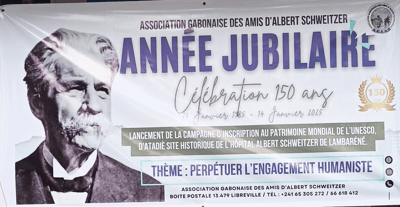

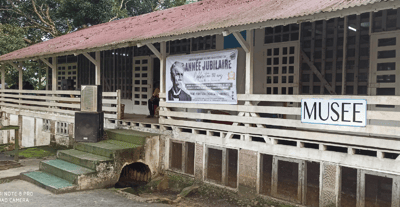

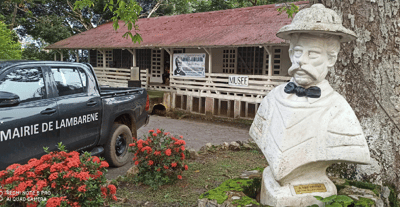

In Lambaréné
We are determined to continue the humanist commitment. Albert Schweitzer has not yet spoken his final word.
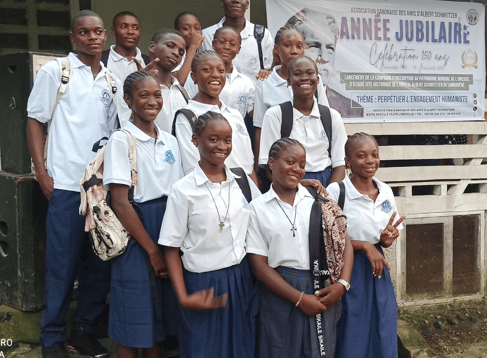

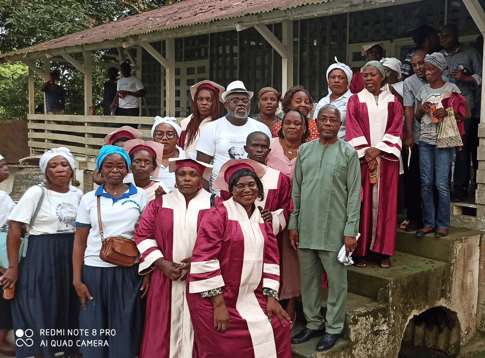

INDICATIVE AGENDA FOR THE ALBERT SCHWEITZER JUBILEE YEAR 2025
PERMANENT ACTIVITIES
Photographic and Documentary Exhibition
Around forty panels will be exhibited daily in schools and public places, showcasing the work, philosophy, and way of life of Albert Schweitzer, his wife Hélène Breslau, and their teams at the Atadiè hospital. The goal is to provide students with access to Schweitzerian memory, with the aim of inspiring humanitarian vocations. Ultimately, this activity should lead to the development of a course on Schweitzerian humanism and the ideals of the United Nations.
Operation to Collect Donations for Orphanages and Social Centers
Donation boxes will be placed in certain locations to collect contributions for those in need. This initiative serves as a reminder that Schweitzerian humanism is not limited to philosophical reflections but is expressed through concrete actions—selflessness, altruism, universal brotherhood, and assistance to the most vulnerable. This activity could serve as an indicator of the Gabonese population's commitment to civic solidarity.
SEPTEMBER 2025 ACTIVITIES
Establishment of the Atadiè Scientific Committee
The Atadiè Scientific Committee is the body responsible for reviving the application for the UNESCO World Heritage listing of the former Albert Schweitzer Hospital (Atadiè historical site). This involves reactivating the process following the site's inclusion on the tentative list in 2009. Since the key figures handling this matter are no longer present, it is essential to appoint new resource persons and develop a strategy to align UNESCO with our objectives.
Schweitzerian Embassies Day
The influence and renown of Albert Schweitzer are today upheld by associations and other initiatives, particularly in the fields of humanitarian work, ecology, and community-based medicine. The many countries where these Schweitzerian initiatives are established need to share and strengthen their experiences, relying, among other things, on diplomatic channels.
Reactivation of the twinning between the cities of Lambaréné and Kaysersberg
On January 14, 1965, on the occasion of Albert Schweitzer's 90th birthday (a few months before his passing), the twinning between the city of Kaysersberg, where the renowned doctor was born, and Lambaréné, where he rests forever, was signed. AGAAS has chosen this jubilee year to reactivate this decentralized cooperation, with the hope of generating socio-economic, cultural, touristic, technological, and scientific benefits for the populations of both localities.
OTHER MONTHLY ACTIVITIES
March - Presentation of the Solemn Message of AGAAS
The Gabonese Association of Friends of Albert Schweitzer has chosen the theme for the Albert Schweitzer Jubilee 2025: PERPETUATING THE HUMANIST COMMITMENT.
This theme needs to be presented in a very official manner to leave a lasting impression. It will be explained before a large audience and will be disseminated through various communication channels.
April - Book Signing of Works Published by AGAAS
The Gabonese Association of Friends of Albert Schweitzer has published two books:
Lambaréné Nous Parle
Lambaréné et Albert Schweitzer
The sale of these books will contribute to funding the activities of the Albert Schweitzer Jubilee Year 2025.
May - Colloquium on the Rehabilitation of Atadiè
The Atadiè site, home to the former Albert Schweitzer Hospital in Lambaréné, requires extensive rehabilitation and maintenance work.
This includes restoration efforts and the construction of a protective barrier around the premises. The work must be carried out in accordance with the standards and regulations established by international organizations responsible for the protection of historical and memorial sites.
June - Launch of the Albert Schweitzer Cultural Week
By responding to the Call of Lambaréné, Albert Schweitzer did more than just assist those in need—he created the conditions for a true dialogue of cultures, a legacy we must continue.
The Lambaréné Cultural Week aims to celebrate Lambaréné as a crossroads city, a cosmopolitan space where multiple ethnicities and cultural expressions intertwine. This initiative contributes to the broader vision of developing tourism and promoting the rich cultural diversity of the region.
The idea of a Gunsbach-Lambaréné tourist circuit aims to establish partnerships to facilitate tourism exchanges between Alsace and Gabon. This project aligns with the new tourism policy promoted by the national authorities of Gabon. The goal is to develop a broader tourism dynamic around the destinations of Lambaréné and Gunsbach, incorporating the discovery of other cultural and environmental treasures.
July - Launch of the Gunsbach-Lambaréné Tourist Circuit
August - Launch of the Albert Schweitzer International Prize
The Albert Schweitzer International Prize was established by the Government of Gabon and announced during the centenary celebration of Albert Schweitzer's arrival in Gabon on April 16, 1913. With an endowment of $250,000, this prize aims to recognize the efforts of an individual or a team working on a long-term, transdisciplinary, and multisectoral project to combat the Triple Epidemic in Africa (HIV/AIDS, malaria, and tuberculosis). We must mobilize to ensure its implementation.
October - Launch of the National Mobile Medical Project
Albert Schweitzer was one of the pioneers of mobile medicine in Gabon, with the goal of facilitating medical access for rural, remote, and marginalized populations. Today, the Gabonese government is working to make this public health policy operational. In this endeavor, it can rely on the expertise of the network of Schweitzerian initiatives that continue to spread across the globe.
November - Launch of a medical caravan in Lambaréné
A call for proposals is launched for the organization of a medical caravan for the people of Lambaréné. The long-term goal is to systematize medical caravans, as they provide a significant complement to the public health system.
December - Launch of a medical caravan in Ndjolé
A call for proposals is launched for the organization of a medical caravan for the populations of Ndjolé. The long-term objective is to systematize medical caravans, as they provide a significant supplement to the public health system.
January 2026 - Symposium to Evaluate the Jubilee Year
This symposium evaluating the Albert Schweitzer 2025 Jubilee Year is a continuation of the conference held in Libreville in July 2013, which brought together hundreds of experts, scientists, and political figures at the invitation of the Gabonese government. That event marked the centenary of Albert Schweitzer and his wife Hélène’s arrival in Gabon. Among other activities, this symposium will revisit the LIBREVILLE DECLARATION, which was formally adopted on that occasion.
SPECIAL ACTIVITIES
January 14 - Thanksgiving Service
The Thanksgiving service held on January 14, 2025, in Lambaréné carries a highly symbolic and meaningful significance. Indeed, Dr. Albert Schweitzer was first and foremost a pastor and theologian: he certainly could not have succeeded in his work without placing God at the center of his commitment and all his initiatives.
Maintenance and management of the historic Atadiè site
A pilot project for the maintenance and management of Atadiè, the historic site of the Albert Schweitzer Hospital in Lambaréné, is being implemented for the Albert Schweitzer Jubilee Year 2025. The objective is to raise awareness at both national and international levels about the importance of establishing a professional management mechanism for this site, in compliance with UNESCO standards.
April 16 - Albert Schweitzer Day
Albert Schweitzer Day / Schweitzer Day is the flagship event of the Gabonese Association of Friends of Albert Schweitzer (AGAAS). For the Albert Schweitzer Jubilee Year 2025, this initiative is expected to have a particularly significant impact. One of its major objectives is the adoption of April 16 in several countries as a Day of Altruism, Selflessness, Human Brotherhood, and Cultural Dialogue.
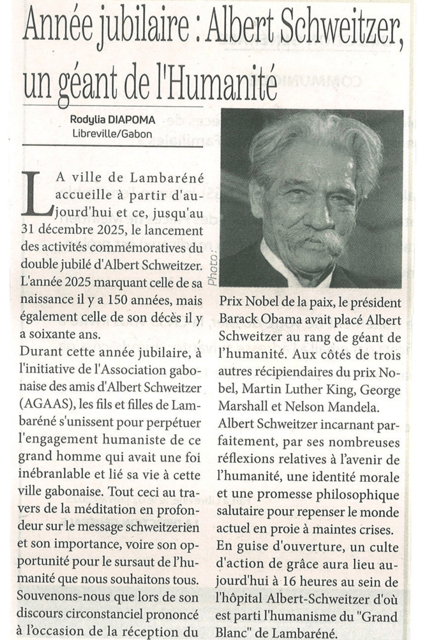

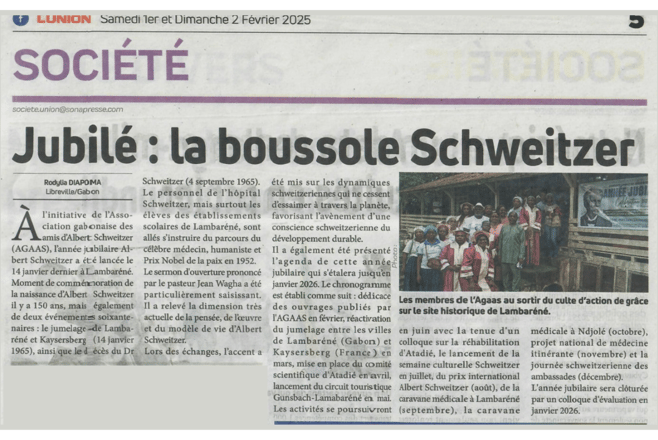

ARTICLES IN L'UNION
INFORMATIONS
For any information regarding the Albert Schweitzer Jubilee Year 2025, please contact:
By supporting local communities and encouraging initiatives rooted in Schweitzer’s principles, we strive to create a brighter and healthier future for all.
Need Help?
Navigation
© 2025 AGAAS. All rights reserved. Designed by Wonda Design.
Informations
707, avenue du Colonel Parant
PO box: 6.693 Libreville (Gabon)
